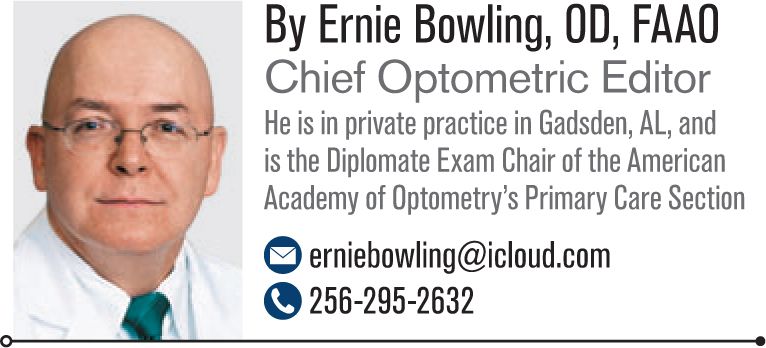Why Blink and Opternative are a disaster waiting to happen
I think we’ll all agree technology is great and wonderful. We wouldn't be where we are as a profession without technological advances and the vast improvements these technologies provide in caring for our patients. Yet as with any new technology, sometimes it is difficult to discern its boundaries.

It seems there are a lot of alternative refractive delivery systems making news these days. Blink, the New York company whose trained “visioneers” will come to your home or office to assess your refractive error “24/7” and deliver you a spectacle prescription from one of their “partner optometrists.”
And then there is Opternative, the online refractive system that allows you to get an “eye exam from the comfort of your home.” That’s right, people. You do not have to get out of your pajamas.
Belly up to your computer with your morning cup of coffee and you can get a spectacle prescription or a contact lens prescription all online, safe in the knowledge that your prescription has been verified by one of their “partner ophthalmologists.”
Related: Why you can't separate refraction from pathology
I think we’ll all agree technology is great and wonderful. We wouldn't be where we are as a profession without technological advances and the vast improvements these technologies provide in caring for our patients. Yet as with any new technology, sometimes it is difficult to discern its boundaries.
We need to be able to temper technology with good common sense. Technology alone will never take the place of a doctor’s experience and clinical acumen. Attempting to do so with an online refraction is not only myopic, it is a public health concern. A lot of times people don't know what they don't know. And they won’t know what they don't know if we don't tell them what they don't know.
For example, I’m certain we have all seen patients who’ve presented for routine exams with no complaints yet some occult pathology was uncovered.
And what was the patient’s response to this news? “But I see fine!” Just because you see great doesn’t necessarily mean everything is great. We know that, but our patients don’t. A refraction is only a small component of an ocular exam, and with these methodologies that all-too-critical ocular health component is ignored.
Related: Eyecare community raises red flags over Opternative
I can’t begin to imagine the professional liability these doctors are exposed to by signing off on these prescriptions. I know I couldn’t sleep at night knowing it was my signature on one of these spectacle prescriptions, not to mention the hazards of writing a contact lens prescription without ever evaluating the lens on the patient!
Fortunately, the optometric institutions that are entrusted with safeguarding the public, i.e., state optometric boards, are aware of these developments, as is our leadership at the American Optometric Association. Every state law has delineated what the components of an ocular exam must include, and these new technologies cannot begin to meet those requirements.
Innovative and disruptive technology in eye care is a new frontier, and like many forays into unexplored frontiers, the first initial treks may meet with disaster.
Some may say telemedicine is the future, and while that might be arguable, what is not open for debate is that technology should be used to supplement clinical knowledge, not replace it. Which is exactly what is happening with these companies, and the results may be disastrous.
Newsletter
Want more insights like this? Subscribe to Optometry Times and get clinical pearls and practice tips delivered straight to your inbox.